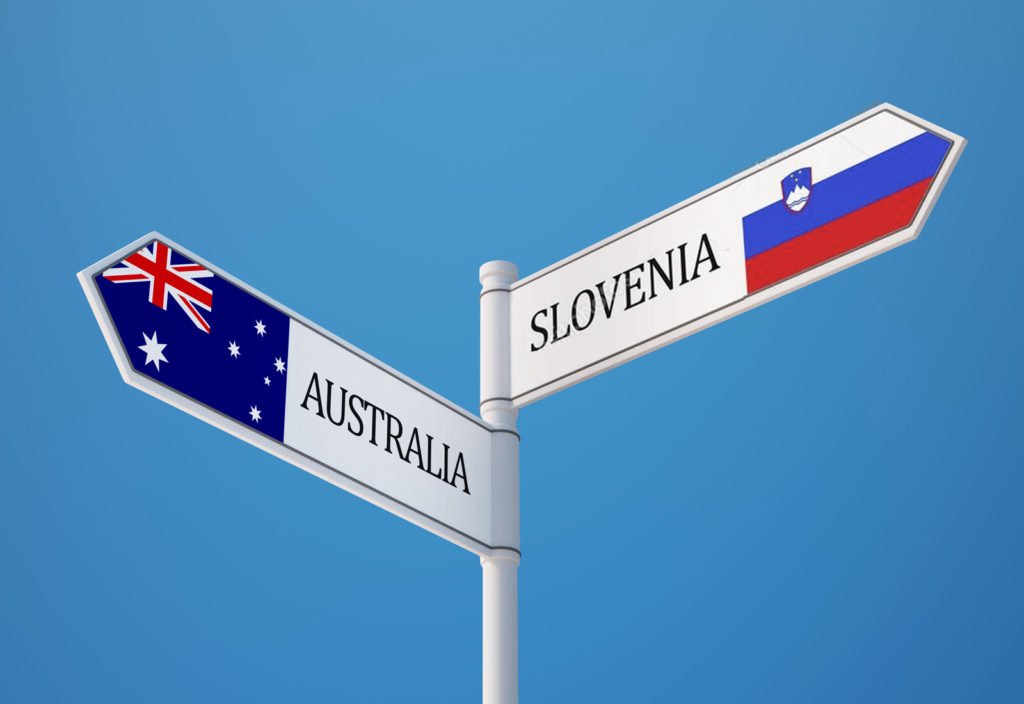
Victorian Universities and Secondary Education Board
In June 1976 the first steps were taken to establish Slovenian as an accredited Higher School Certificate (HSC) subject within the framework of the Australian school system and a positive response was received. This marked a major breakthrough for Slovenian language in Australia. It meant that Slovenian would become one of the subjects included in the scoring for university entrance. Students would not be attending Slovenian to please their parents or for the love of the language, but the results would also directly contribute towards their personal aspirations.
Regular attendance, a set syllabus, and pride in their cultural heritage were essential if we were to give our young people growing up as Australians a sense of purpose and respect for the language of their ancestors.
The largest classes in 1976 were in the Slovenian Religious and Cultural Centre in Melbourne. There were 40 students attending a junior and a senior class, with the teachers Lucija Srnec and Pavlina Pahor.
The issue of Higher School Certificate (matura) accreditation for Slovenian language was raised with the language consultant for the languages of Yugoslavia who visited Slovenian classes in the Centre. The proposal was, that Slovenian students enrol for Serbo-Croatian. This was not acceptable.
Subsequently Aleksandra (Saša) Ceferin (BA, MA, Dip.Ed), a qualified teacher of German, approached the Chairman of the Committee for Balto-Slavonic Languages, Prof. Jiri Marvan (Monash University) about the possibility of H.S.C. accreditation, and was given an encouraging response.
Aleksandra Ceferin immediately developed the required documentation including a detailed description of the grammatical/linguistic structure, a list of language reference books, and a complete sample examination paper. On this basis, provisional approval was received. The matter could not be taken further at the time, however. The process of accreditation was halted for a two-year moratorium on all new HSC subjects in Victoria.
Other possibilities to formalize Slovenian language teaching in the interim were explored. This led to the discovery of the Victorian state language school – Saturday School of Modern Languages (SSML), which provided classes for languages not offered within the regular school hours. The offer was taken up and the fairly stringent requirements were fulfilled. A submission was requested, containing a list of students with addresses and weekday school they attended, a list of teachers and emergency teachers, a list of coursebooks, and detailed curriculum for two levels.
In 1976 the Slovenian Teachers Association of Victoria was also established and a submission presented. The decision came quickly. The classes would start in 1977 at three SSML centres. Regular classes would begin at junior and middle level. The HSC accreditation process would be delayed till 1978.
Victorian Certification Authorities – Accreditation of Slovenian as a Higher School Certificate subject in Australia
In Australia there are independent authorities which accredit subjects to be taught at the Higher Secondary level (matriculation/matura), set standards, for level 12, and are responsible for examinations, which serve also as entrance examinations for tertiary studies.
Since 1976, when we first approached the accreditation authority regarding Slovenian language, there were a number of reforms and name changes for this authority in Victoria, as their function changed somewhat during a period of intensive educational reform. In 1976 we dealt with VUSEB, which was followed by VISE, VCAB, BoS and VCAA.
The process was accreditation was reinstated in 1978. Slovenian became the first subject accredited under the new accreditation system under the authority of the so-named Victorian Institute of Secondary Education (VISE).
The accreditation of Slovenian as a Higher School Certificate (HSC) subject was finalized in 1980. In 1981 the first group of students completed Slovenian HSC in Victoria.
Slovenian was accredited by the state school system of New South Wales in 1979, when it was introduced as a HSC subject in the newly established Saturday School of Community Languages in Sydney, New South Wales. The accreditation process was facilitated by A. Ceferin, who was asked to prepare a syllabus as the initial phase towards accreditation of Slovenian as a HSC subject in NSW.
A Committee of three members was appointed: Prof. Marvan (Slavic Department, Monash University), Prof. De Bray (Australian National University) and A. Ceferin (Slovenian Manager and Course Developer, Victoria). The committee oversaw the introduction and the first year of Slovenian HSC in NSW, the preparation of the examination paper and assessment in 1979.
From 1989 to 1996 Slovenian was offered as a tertiary course of study by Macquarie University, NSW. It was also offered as a long distance course. At the time Macquarie University was the only Australian university offering distance education. It was particularly appropriate for the Slovenian community who characteristically live dispersed throughout Australia.
The lectureship was an interesting attempt to offer Slovenian at tertiary level. Both lecturers – Aleksandra Bizjak and Metka Čuk – were from Slovenia, and enrolments were satisfactory, particularly the first year. The course was partly funded by the Slovenian government, partly by the Australian Slovenian community, and there was a funding and enrolment drive each year, ably conducted for the Slovenian Foundation by Sydney Slovenian Maria Senčar. The lectureship folded for various reasons, the main one being the lack of financial resources.
